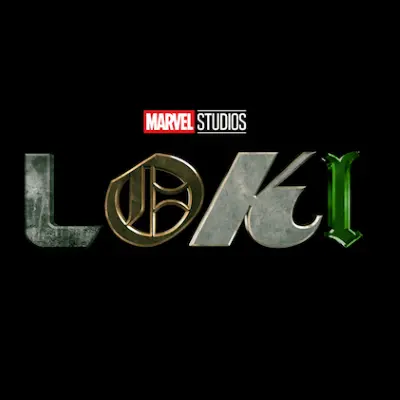Loki's success is due to it feeling so little like a Marvel show -- but it's still hampered by the MCU
-

"It has more in common with Dr. Who and The Wizard of Oz and even The Matrix: Reloaded—the big He Who Remains scene in the finale is essentially the Architect scene but less pretentious—than it does the MCU," says Luis Paez-Pumar of Marvel's Loki. "Unfortunately, it is still part of that pop culture-consuming behemoth, and that’s where the show’s biggest failure comes in. Despite telling a pretty self-contained story, starring a titular character who has been dead in the main MCU chronology since Infinity War, Loki is still part and parcel to the franchise, and so must set up future mysteries. The Kang the Conqueror reveal in the last moments landed like a wallop to the head for me, because it’s exactly the type of MCU franchise-building that reminds viewers that nothing matters more than the mothership. It’s a similar problem to the one WandaVision had at the end, though, at the very least, Loki avoided having (Tom) Hiddleston and (Sophia) Di Martino fly around while shooting CGI blasts at each other. Their quick battle was more of a character moment than an action scene, but that fit the show’s modus operandi well. The questions raised by the show—about free will, about what we owe ourselves, and about the contrast between crushing order or, as (Jonathan) Majors puts it, 'cataclysmic chaos'—are all shelved, for now, in favor of giving Marvel fans something to obsess over as we move into Phase Four. Yes, there will be a second season of Loki that will likely further the show’s internal narrative, and yes, Kang the Conqueror is a very big and potentially cool addition to the MCU, so he had to be set up somewhere. It’s just disappointing that this is always how it goes. Loki had a chance to be something different, something that didn’t need the entire weight of a franchise on its shoulders, and for five-sixths of its run, it did just that."
ALSO:
- Loki solved the MCU's villain problem: "It is universally acknowledged among even the most ardent Marvel Cinematic Universe fans that the Marvel movies have a villain problem. With some notable exceptions (more on these later) the bad guys tend to be somewhat simplistic, very disposable and have either vague or overly complicated plans. And while Marvel often recruits fantastic actors to tackle these roles—from Cate Blanchett to Robert Redford to Jake Gyllenhaal—they rarely get time to do much more than chew the scenery, and then we never hear from them again. That’s what makes Jonathan Majors’ performance in the final episode of Loki so exciting."
- Loki has been the best MCU series because it told an interesting character-driven story while also advancing the MCU: "From my vantage point, Loki far outshines WandaVision and The Falcon and the Winter Soldier for the very simple reason that it was the only one that successfully told an interesting character-driven story while also advancing the story of the larger Marvel Cinematic Universe (MCU) and setting up future installments — with the latter task being, in my humble opinion, a must for these Disney Plus shows," says Eric Ting. "While some have argued that the Loki finale was <i>too focused on the larger MCU, I respectfully disagree. Marvel's Disney Plus shows each run approximately six hours, which is more than twice as long as a film. And because the TV leads typically play supporting roles in comic books and movies, viewers are well within their rights to expect these shows to contain broader universe tie-ins and set-ups, so as not to be subjected to six hours of learning about the Winter Soldier's dating life woes."
- Loki director Kate Herron says the show learned about the Season 2 renewal while doing post-production: “I think we found out quite late," she says. "I think it was probably when we were in post. It was just coming out of the fact that everyone was really excited with the work we’d all done. And it just felt clearly that there was so much more road to travel with the characters,” Herron said. “In terms of the end, where he’s in the TVA, and he runs through, and it’s like, Is he in the TVA we know? Definitely we worked on (that) once we knew the story was continuing. But I think we always intended to have questions for the characters.”
- Herron on casting Jonathan Majors: "It was really with Jonathan. When we cast him, I was talking to him with the studio about the role, and something that was cool for us all, is that psychologically He Who Remains has been on his own for a very long time," she says. "This is someone who has been isolated, but he’s been running this huge thing and it’s a lot of responsibilities. So that was the fun thing was finding that fine line between the extrovert and the introvert of that character and how does he show that he’s been living on his own. That was fun as well: digging into that aspect of the character and it echoed across our production design."
- Jonathan Majors only got the Kang the Conqueror in Ant-Man and the Wasp: Quantumania because he was going to first appear in Loki
- Herron discusses the Loki scenes left on the cutting-room floor
- Who is Kang the Conqueror?
- Loki producer wishes there was more time to develop Gugu Mbatha-Raw’s Judge Ravonna Renslayer
- Loki composer Natalie Holt immediately knew that she wanted the sliding, spacey eeriness of the theremin to musically convey the God of Mischief trapped in the TVA
- Loki features the first MCU character previously owned by Fox
TOPICS: Loki, Disney+, Gugu Mbatha-Raw, Jonathan Majors, Kate Herron, Marvel, Marvel Cinematic Universe
